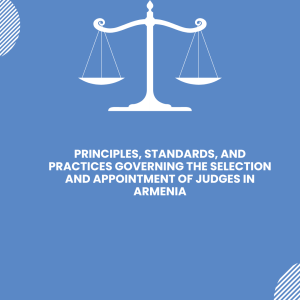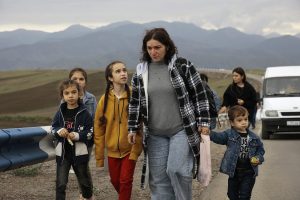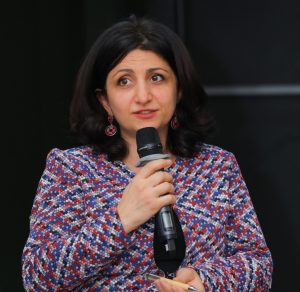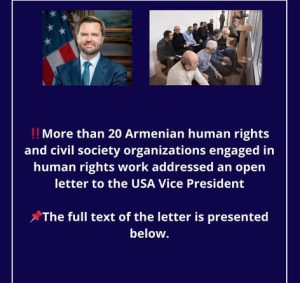Statement by the Coordination Committee of the Civic Solidarity Platform


Milano, 07 December 2018
We, members of the Coordination Committee of the Civic Solidarity Platform (CSP) and other civil society representatives, are shocked by the exclusion of non-governmental organizations (NGOs) from attending the opening and closing sessions of the OSCE Ministerial Council Meeting (MC) in the plenary hall as well as not being provided with an opportunity to follow the live broadcast of proceedings orto hold side events in Milano on 6 and 7 December 2018.
For the first time ever, civil society representatives were refused physical access to the opening and closing sessions of the OSCE MC in the plenary hall, in break with previous practice and in contradiction to the Rules of Procedure of the OSCE which say that “[o]nly the opening and closing sessions shall be open to the press and the public, unless the meeting decides to make other sessions open.”1 While media representatives had access to the opening and closing sessions in the plenary hall, NGO representatives did not.
Although NGOs were provided with their own working and meeting space, the space was without visual and audio equipment to allow them to follow the MC proceedings, also in direct contradiction to the OSCE Rules of Procedure. 2 The space provided for NGOs was secluded and therefore did not allow for any meaningful exchange with MC participants.
Furthermore, after inquiring of the Italian OSCE Chairmanship weeks ago about the possibility of organising and/ or contributing to side events, the Civic Solidarity Platform was informed that this year there would be no side events, only to learn once in Milano that many side events were in fact scheduled without NGO participation. This clearly shows that NGOs are welcome as long as they are invisible and silent.
The physical access of NGOs to the plenary hall is not only an organisational matter, but a political one as described in a Statement on safeguarding civil society participation in the Helsinki process – a matter of the OSCE’s raison d’ être, issued by the CSP in December 2017. The exclusion of NGOs thus contradicts all that the OSCE stands for. The treatment of NGOs at the OSCE Ministerial Council Meeting in Milano is yet another sign of shrinking civil society space (see the CSP’s Hamburg Declaration from 2016), including in the OSCE work (see the CSP’s Milano statement on safeguarding NGO participation in OSCE events,which was handed over to high-level OSCE representatives, including the Italian OSCE Chairmanship, on 5 December 2018) and an early warning sign threatening the principles laid down in the Helsinki Final Act. To our great regret, the decision to exclude NGOs from the MC plenary hall for the opening and closing session was not communicated to NGO partners by the Italian OSCE Chairmanship, nor was the change in modalities indicated in Circular Note 6 (MC.INF/8/18 of 12 November 2018), which reiterated the OSCE Rules regarding NGO physical access to the opening and closing sessions and a live broadcast of MC 1 Rules of Procedure of the OSCE, p. 10, IV.2 (B) paragraph 6 (MC.DOC/1/06 of 1 November 2006). 2 “Unless otherwise decided, all sessions, except for those taking up agenda items which are subject to discussion and possible decision, shall be broadcast live in all the working languages to the media centre and NGO centre by closed-circuit television. “ Ibid. 2 proceedings in the NGO centre. Only on the evening of 5 December did NGOs learn from the technical staff that they would not be allowed to physically attend the MC meeting, by which time it was too late for them to address and resolve the matter with the OSCE leadership. The absence of timely communication from the Italian OSCE Chairmanship thus resulted in the accredited NGO representatives spending their scarce financial resources in vain by staying for two extra days after the OSCE Parallel Civil Society Conference on 5 December 2018 without achieving any level of meaningful debate or interaction with the MC participants. To our dismay, this lack of information and access for NGOs has unfortunately been a recurrent problem during the Italian Chairmanship.
We note that in a statement made by the OSCE Chairperson-in-Office, Minister of Foreign Affairs of Italy Enzo Moavero Milanesi at the closing press conference of the MC meeting he noted that he had not been aware of the problem of exclusion of NGOs and that this was a mistake and a “negative experience that should not be repeated in the future”. We also note with satisfaction the words of the incoming OSCE Chairperson-in-Office, Minister of Foreign Affairs of Slovakia Miroslav Lajčák at the press conference who stated that Slovakia is strongly committed to cooperation with civil society and will guarantee access by NGOs to the MC in Bratislava in 2019 in full accordance with OSCE rules.
We hope that all parties concerned will draw lessons from the negative experience in Milano. We reiterate our call to all OSCE actors, including the Chairmanships, executive bodies, autonomous institutions, and participating States, to protect and expand civil society space and ensure unhindered and meaningful NGO participation in OSCE events.
In particular, we call on the incoming Slovak OSCE Chairmanship to:
CSP Statement on Shrinking Space for Civil Society in the OSCE MC 2018 in Milano

This submission is PRWB’s contribution to the Special Rapporteur on

A coalition of human rights organizations submitted a third-party intervention

Anna Melikyan, PRWB Projects Coordinator and Legal Expert, participated in

On the eve of U.S. Vice President JD Vance’s visit